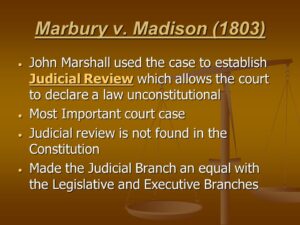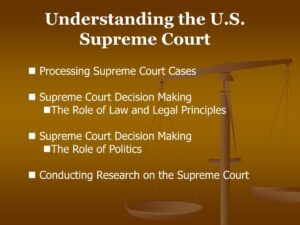What is an Intervenor in Family Court?
Family court cases involving custody, visitation, and child support often impact more than just the parents. An “intervenor” is someone who interjects themselves into an existing case to protect their own interests. Friends, relatives, and others with a close relationship to the child can request intervenor status to gain a legal voice in the proceedings.
Who Can Intervene in a Family Court Case?
Grandparents are the most common intervenors in family court. If they have a close bond with a grandchild, they may want visitation or even custody if the parents are unfit. Grandparents have the greatest chance of gaining intervenor status and rights.
Other relatives, like aunts, uncles, or adult siblings, can also request intervenor status for visitation or custody. However, courts are more skeptical of distant relatives intervening unless there are unusual circumstances.
Family friends and neighbors who have a close, parental-type relationship with a child have a legal path to request intervenor status. But it’s challenging to gain the court’s approval without being an established relative.
Why Do People Seek Intervenor Status?
Here are the main motivations for seeking intervenor status in a family court case:
Visitation Rights
Getting intervenor status is the only way non-parents can obtain court-ordered visitation with a child. Without it, parents could cut off access to the child with no legal recourse.
Guardianship or Custody
Relatives or family friends may intervene in hopes of gaining full or joint guardianship or custody of a child. This is common when parents are deemed unfit due to issues like substance abuse.
Adoption
In some cases, an intervenor may be seeking adoption of a child without parental consent. This can occur if parents have abandoned the child or had rights terminated.
Financial Support
An intervenor may want the right to continue child support payments or have a say in how support funds are spent. This often applies to stepparents or grandparents who provided financial care.
Information Access
Intervenors often want access to legal and medical documents pertaining to the child. Parents may try to block information, so intervenor status helps gain full disclosure.
Child’s Best Interests
Many intervenors simply want the court to hear information they feel is in the child’s best interests. The intervenor status gives them an avenue to present concerns about safety, welfare, etc.
What Are the Requirements to Gain Intervenor Status?
Intervenors don’t have an automatic right to participate in family court cases. The court must first approve intervenor status based on certain requirements:
- Standing – The intervenor must prove they have a vested interest in the proceedings and the outcome will directly impact them.
- Timeliness – Courts look for intervention requests to be filed early on in a case. Waiting too long can signal disingenuous motives.
- Best interests of the child – The intervenor must demonstrate their involvement will benefit the child or help resolve conflicts that harm the child.
- Limited disruption – Intervenors cannot excessively complicate or delay proceedings. The court wants to avoid overburdening the process.
- Existing relationship – Intervenors must prove an established, significant relationship and bond with the child.
What Legal Rights Do Intervenors Have in Family Court?
Once granted intervenor status, an intervenor can exercise the following legal rights:
Access to Documents
- View all pleadings, motions, and files about the case
- Access medical, school, and other records pertaining to the child
Participation in Hearings
- Attend all court hearings and proceedings
- Testify as a witness to provide information to the court
- Cross examine other witnesses, including parents and experts
Independent Legal Representation
- Hire an attorney to represent only the interests of the intervenor
- File motions and submit their own pleadings/documents
Appeal Outcomes
- Appealing or objecting to any final orders or decrees
- Appealing if their intervenor status gets terminated
However, the intervenor cannot control which legal issues the court ultimately decides to hear or the outcomes rendered. The parents remain the primary parties in the case.
What Role Do Intervenors Play in Custody Cases?
Intervenors in custody cases essentially serve as an additional voice that provides guidance about the child’s best interests. They can:
- Inform the court about each parent’s abilities and relationship with the child
- Provide facts about the child’s history and experiences
- Explain their own role and bond with the child
- Offer expert testimony evaluating the parents and making custody recommendations
- Propose alternative custody solutions, like granting joint or sole custody to the intervenor
While the court will consider the intervenor’s perspective, the judge retains full discretion to decide custody based on all the evidence. But an intervenor gives the court extra context beyond just what the feuding parents present.
How Does an Intervention Order Affect Custody and Visitation?
If an intervenor succeeds in gaining visitation or custody rights, the court will issue corresponding orders. These intervene with, and likely modify, existing orders governing the parents.
For example, granting an intervenor visitation will require altering the visitation schedule for the parents. Custody intervenor orders may fully supersede prior parent custody orders.
However, the intervenor orders cannot punish or unfairly reduce parental rights without just cause. The goal is developing a revised plan that includes the intervenor in the child’s best interests. Parents may retain certain rights like visitation even if an intervenor receives custody.
Can an Intervenor Order be Modified Later On?
Intervenor orders remain open to future revision like any other family court order. If circumstances change later on, either the parents or the intervenor can file motions to modify the orders.
Common reasons to revisit intervenor orders include:
- Child gets older and wants more time with parents and less with intervenor
- Intervenor is no longer fit to have visitation or custody due to illness, finances, etc.
- Parent resolves original deficiencies that justified granting intervenor rights initially
The court will apply the same “best interests of the child” standard when considering motions to terminate or modify intervenor orders. If the existing arrangement still benefits the child, it will likely continue absent a compelling reason to change it.
How Does an Intervenor Differ from a Guardian Ad Litem?
While intervenors and guardians ad litem (GAL) both inject third parties into custody cases, there are key differences:
- GALs are appointed by the court – Intervenors request status voluntarily
- GALs advocate for the child – Intervenors advocate for their own interests
- GALs provide recommendations – Intervenors testify to facts and opinions
- GALs act as advisors – Intervenors have standing to file motions and pleadings
So a GAL serves only the court to further the child’s interests. Intervenors serve their own wishes by becoming actual parties to the case. But the court can appoint a GAL even without granting intervenor requests.
Conclusion
Obtaining intervenor status allows non-parents to gain legal rights and influence over family court cases impacting children important to them. While the path to approval may be difficult, determined relatives or family friends do have a mechanism to persuade the court. Intervenors can provide a wise perspective on custody, visitation, and the child’s overall welfare. But ultimately the judge will filter recommendations through the lens of the child’s best interests. With thoughtful consideration, intervenors can positively transform contentious family court matters.
FAQs
What should an intervenor prove to gain status?
An intervenor must prove they have a close, established relationship with the child and their involvement will serve the child’s best interests without excessively disrupting the proceedings.
Do intervenors have to hire their own lawyer?
Intervenors are allowed but not required to hire their own attorney to represent solely their interests before the court.
Can an ex-spouse intervene in a divorce and custody case?
Unless they are a biological parent seeking custody, an ex-spouse typically cannot intervene since they no longer have a legal relationship with the child.
How quickly should someone seeking intervenor status act?
It is best to retain counsel and petition for intervenor status as soon as possible once an applicable family court case begins. Courts frown on delayed requests.
Can intervenors file motions for contempt if parents violate orders?
Yes, intervenors have full legal standing to file contempt motions against parents who violate intervenor visitation or custody awards.







